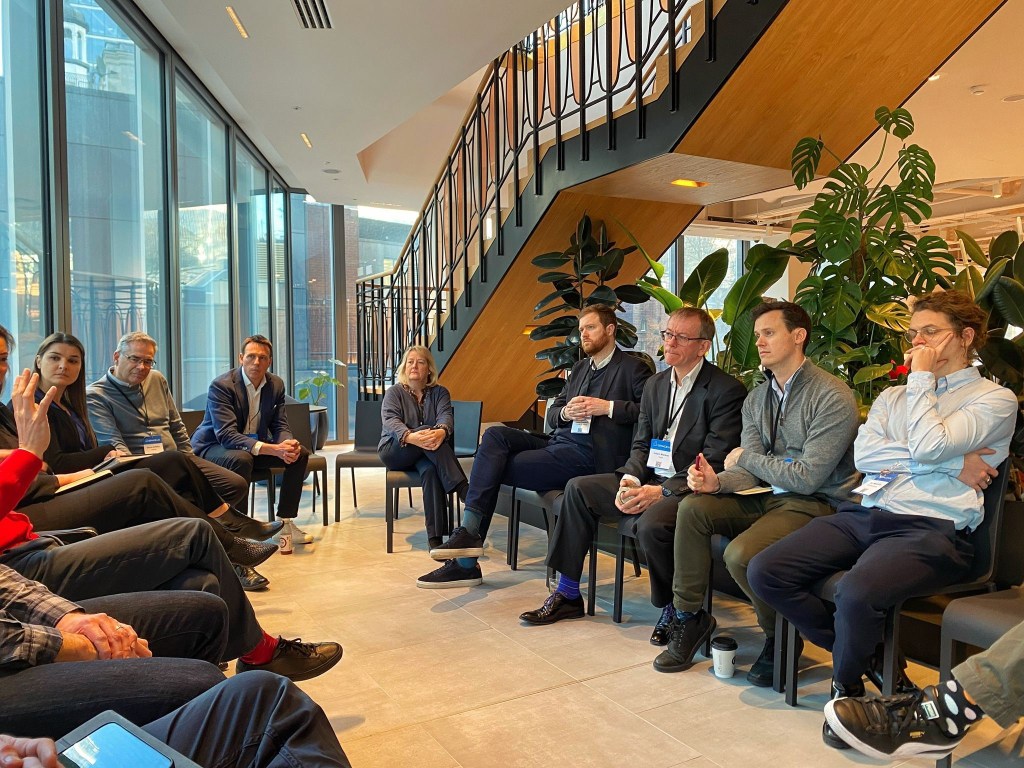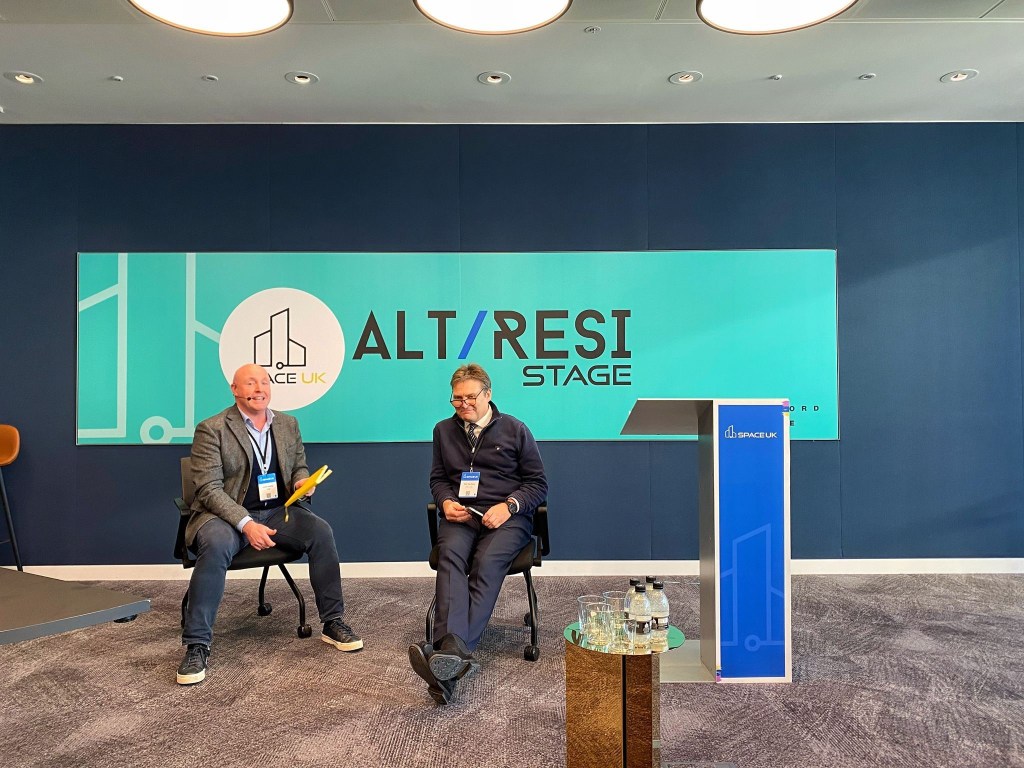
Yardi recently attended Space UK, a leading property event curated for occupiers, developers, landlords, investors and suppliers within the real estate industry.
The event compiled diverse themes, including regeneration, smarter asset management, space as a service, technology, the future of rental living, sustainability and new business models.
Industry experts from The Crown Estate, Avison Young, Freestate, Greystar, Argent and British Land opened the event with a positive look at how the sector can find purpose and lead critical change within the current volatile market.
Spotlight takeaways included:
“In unprecedented times, the property sector must look outward to find purpose and facilitate opportunity through collaboration.”
Kat Hanna, director at Avison Young and co-chair of SPACE UK.
“Our focus should always be on feedback so we can deliver the best for our people. At the end of the day, no amenity makes up for poor leadership.”
Johnny Langton, managing director for Greystar.
“Too much change can sometimes mean a threat, but it’s about working ways to manage it.”
Morwenna Hall, partner and COO for Argent.
“Strategy has to stand the test of time.”
David Walker, COO for British Land
Smarter Asset Management
As the industry continues to evolve, so do its consumers, business models and priorities. Asset management becomes less about assets alone and more about people, technology and outcomes.
Adam Mackay, senior account executive at Yardi, joined experts from AEW, Trilogy Real Estate, Seaforth Land and Ivanhoe Cambridge for a tribe discussion about what is required for smarter asset management.
“Our business is like Clapham Junction – it’s very complicated,” said Rachel McIsacc, managing director for AEW. “We have a portfolio of buildings all over the UK with over 5000 tenants. Within this ecosystem, we have closing funds, opening funds, UK REITs and more, that all vary in being valued monthly or annually.”

McIsacc continued, “For smarter asset management, we need technology that operates efficiently so that our managing agents can gather data quickly and our teams can concentrate on business-focused problems without wasting time.”
With ESG at the forefront of market concerns, Mackay asked the room what sustainability and social impact mean for smarter asset management.
Jon Allgood, head of asset management for Seaforth Land commented, “Investors and legislation play a part in driving ESG but ultimately, we are in a climate emergency and need to act – that’s the main driver.”
Allgood continued, “We must consider what systems we’re putting into our buildings to make them as carbon efficient as possible. Retrofit, as opposed to knock-down and rebuild, is the favoured approach.”
Concerns arose over the ability to measure social impact, part of the ESG model, due to the granularity and subjectivity of the data. McIsaac stated that, “Rethinking company values is a good place to start – however, it is difficult to measure social impact and it is something that we are still figuring out as an industry.”
Collating and listening to customer feedback was also discussed as a key metric for social impact. However, Kat Hanna from Avison Young disputed this example, stating, “This merely demonstrates being a good service provider rather than the impact you are having on the wider community.”
According to the Organisation for Economic Co-operation and Development (OECD), there are many indicators that organisations can utilise to measure social impact including:
Employment – looking at hiring processes, staff turnover and promotion.
Earnings – including wages, benefits, pay gaps and overall, financial insecurity.
Learning & Skills – exploring new skills acquired and personal development.
Health – ensuring good mental health and health & safety working conditions.
Social Support – identifying leadership effectiveness and trust between workers.
Work/Life Balance – annual leave, parental leave and average working hours per employee.
The Future of Rental Living

In the afternoon, Yardi’s Justin Harley sat down with Rick De Blaby, CEO of Get Living, for a keynote interview on the future of rental living. Renowned for developments in East Village, Elephant Central and New Maker Yards, Blaby provided some initial insight into the success of Get Living thus far.
“We’re as good as the last service we deliver and so, we pride ourselves on recruiting people with a good energy, who naturally want to collaborate and deliver customer care,” said Blaby. “From here, we empower our people. We instil in them the opportunity to have purpose and make a difference.”
The discussion then steered towards the property sector overall, where Blaby provided current market insight.
Buy-to-sell – “Despite mortgage approvals per month rising again; the cost of a mortgage remains expensive. Therefore, if you’re in the build-to-sell market, you’re probably tightening the bolts.”
Affordable housing – “This market has its challenges. Not only has the government imposed caps on rent, but there is also massive demand on spare capital to upgrade stock. This means the future development pipeline coming out of the housing association will curtail.”
Buy-to-let – “Buy-to-letters are leaving the market due to a lack of ROI. Regarding the housing crisis, this corner of the market never adds supply – they simply buy existing stock from second-hand sellers.”
Build to Rent – “That leaves BTR in a position where, as a sector, we can deliver some of the homes that are really required in the UK. However, market entry isn’t as easy as people anticipate and I don’t think the supply of BTR is going to be as big as the spreadsheet might indicate.”
After an interesting discussion, Harley concluded by asking Blaby one final question – what do BTR providers need to do to remain successful in the BTR sector?
Blaby advised:
- Build a great team
- Have a strong proposition and brand
- Get the right capital behind you
- Be clear on your position in the market
- Always ensure clear communication with your people, investors and suppliers
- Have conviction in spending money on technology – it will repay you in efficiency, data analytics and security